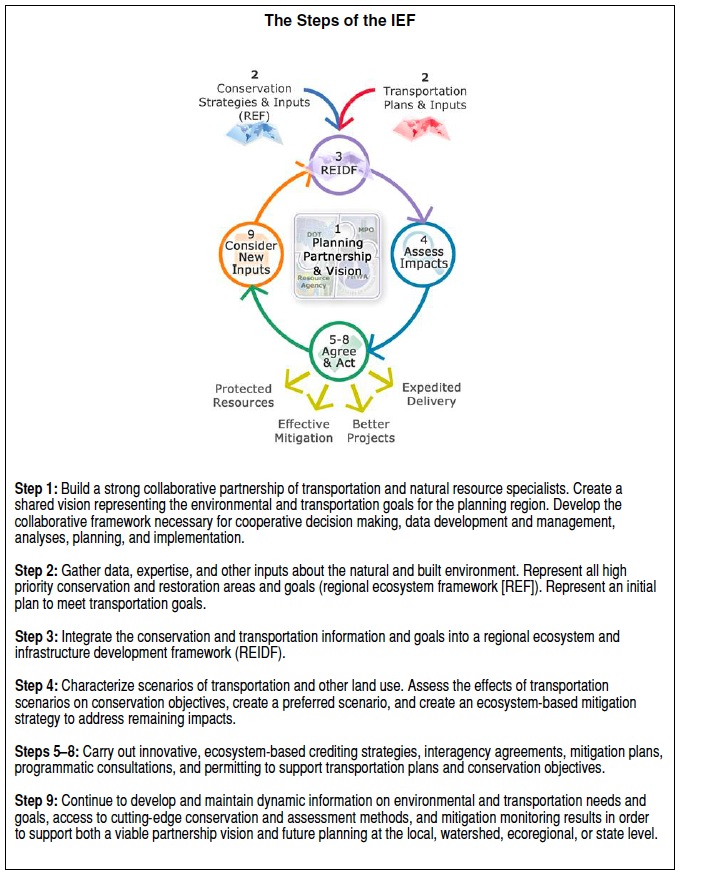TRANSPORTATION RESEARCH BOARD
Executive Summary
Strategic Highway Research Program (SHRP 2) Project C06, Integration of Conservation, Highway Planning, and Environmental Permitting Using an Outcome-Based Ecosystem Approach, is intended to support the integration of transportation and ecological planning. This project addresses the questions of how to (1) achieve interagency agreement on ecological solutions, (2) identify and leverage existing ways to increase predictability and assurance that credit will be allowed for addressing agency conservation and restoration priorities early in planning, (3) identify and leverage existing tools to increase resource agency confidence that mitigation commitments will be kept, and (4) make decisions last over time and across jurisdictions. This project is built on the groundwork laid in the development of Eco-Logical: An Ecosystem Approach to Developing Infrastructure Projects, the U.S. Fish and Wildlife Service strategic habitat conservation approach, and other relevant ecosystem-based approaches (Brown 2006). The research approach and major findings of the project are summarized in this report.
This is the first report of a three-volume series. An Ecological Approach to Integrating Conservation and Highway Planning, Volume 2, summarizes the approach and outcomes of a partner project, Integration of Conservation, Highway Planning, and Environmental Permitting Through Development of an Outcome-Based Ecosystem-Scale Approach and Corresponding Credit System. The Practitioner’s Guide to the Integrated Ecological Framework is a guide to using one of the main products of these efforts, the Integrated Ecological Framework (IEF).
The research, conducted primarily between 2008 and 2010, suggests that although there is strong support for integrated transportation and ecological planning, there is room for progress in its implementation.
Surveys and interviews of staff in transportation and resource agencies indicate that the main incentives for integrating transportation and ecological planning are related to efficient decision making, fiscal benefits, and improved outcomes for the natural environment:
- Efficient decision making: By investing time and money up front, transportation plans can better avoid critical resources; costly re-do loops and delays in project development can be eliminated or minimized; and advance mitigation on an ecosystem scale can be established.
- Fiscal benefits: Monetary savings are expected to result from both efficiencies in the decision-making process and the ability to purchase land for mitigation early, thereby avoiding rising land costs and the declining availability of high-quality conservation areas.
- Improved outcomes: Focusing on the ecosystem as a whole, rather than considering resources separately according to individual agencies’ jurisdictions, results in better identifying and prioritizing critical areas to conserve and protect. Making this information available and using it during transportation planning will result in better protection of critical natural resources.
Download full version (PDF): An Ecological Approach to Integrating Conservation and Highway Planning
About the Transportation Research Board
www.trb.org
“The mission of the Transportation Research Board is to provide leadership in transportation innovation and progress through research and information exchange, conducted within a setting that is objective, interdisciplinary, and multimodal.”
Tags: Conservation, Ecology, National Academies, Transportation Research Board, TRB of NA







 RSS Feed
RSS Feed